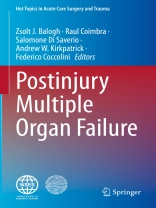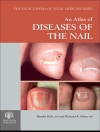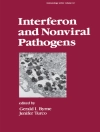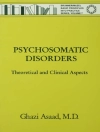This book on post-injury multiple organ failure (MOF) offers a comprehensive overview and clinically focused practical guide to treating the condition. MOF is arguably the most difficult complication to manage in polytrauma patients and is responsible for the majority of trauma deaths among patients who survived the first 24 hours after injury. Beyond mortality, it has a major impact on healthcare resource utilization and a persistent negative effect on patients’ long-term reported outcomes.
This book is edited by surgeons who are passionate about the topic, and about optimizing the outcomes for polytrauma patients. Grasping the fascinating pathophysiology of MOF is essential for providing patients with quality early care. Each chapter highlights key learning objectives, historical perspectives, diagnostic and therapeutic pearls, and includes a must-know summary, additional reading suggestions and future research directions. Flowcharts, decision-making guides, summary tables, graphics and clinical photographs help to maximize the learning experience and to ensure readers retain what they’ve learned. The book fills a unique niche area for many specialties dedicated to critical care of polytrauma patients and to their management before and beyond intensive care.
Inhaltsverzeichnis
1 Historic perspective and relevant evolutionary landmarks in trauma care.- 2 The definition of postinjury Multiple Organ Failure.- 3 The pathomechanism of postinjury MOF.- 4 Genomic considerations related to postinjury MOF.- 5 The epidemiology of postinjury MOF.- 6 The relevance of traumatic shock and its treatment on the epidemiology of MOF.- 7 The relevance of the timing of surgical interventions.- 8 The population at risk, predictors of MOF.- 9 Postinjury MOF with and without infection.- 10 The principles of treatment, modern therapeutic targets.- 11 Central nervous system.- 12 Respiratory failure.- 13 Cardiac failure.- 14 Liver failure.- 15 Gastrointestinal failure, clinical presentations and treatment.- 16 Kidney failure.- 17 Bone marrow failure.- 18 MOF management in low resource settings.- 19 MOF in pregnancy and its relevance to Eclampsia.- 20 MOF in paediatric patients.- 21Summary of randomised controlled trials with significant effect on MOF outcomes.- 22 Iatrogenic causes leading to MOF.- 23 Short term outcomes, what has changed during the last 40 years?.- 24 Long term outcomes and functional outcomes.- 25 Future directions.
Über den Autor
Zsolt J. Balogh is a trauma and orthopaedic trauma surgeon with Ph D in postinjury multiple organ failure. He is the Director of Trauma Services for John Hunter Hospital and Hunter New England Health, and the Professor of Surgery and Traumatology at the University of Newcastle, Australia. Professor Balogh’s main clinical and scientific interests are polytrauma care, traumatic shock and resuscitation, inflammatory response and regeneration after severe injury, pelvic/acetabular fractures, major orthopaedic trauma. His more than 250 peer-reviewed scientific articles had over 20, 000 citations. He is the convener of the Master of Traumatology postgraduate program and is leading an established clinical and basic science research program (Ph D, Master and Honours). He contributes to numerous peer-reviewed scientific journals as editor, editorial board member. Professor Balogh holds leadership roles in several national and international scientific societies and research advisory boards.
Federico Coccolini is currently working as a general, emergency and trauma surgeon at the General, Emergency and Trauma Surgery Dept. of Bufalini Hospital in Cesena (Italy). His main fields of interest are emergency surgery, trauma surgery, trauma patient management, as well as emergency and trauma system organization and implementation, and abdominal surgery. He has published widely (more than 100 papers) and has written several book chapters, most of them as first author. i He is the main investigator of IROA (International Register of Open Abdomen), the widest multicenter cohort study on open abdomen patients ever performed, which is recruiting hundreds of patients from all around the world.
Andrew W. Kirkpatrick is a Professor in both the Departments of Surgery and Critical Care Medicine at the Foothills Medical Centre of the University of Calgary, and the former Medical Director of Regional Trauma Services. Dr.Kirkpatrick graduated Magna Cum Laude from the University of Ottawa, with fellowships in Surgery and Critical Care at the University of Toronto with a Master’s degree in Epidemiology at the University of British Columbia.He is a Past President of the Trauma Association of Canada and the Abdominal Compartment Society. Dr. Kirkpatrick has more than 450 peer-reviewed articles and book chapters, mainly concerning intra-abdominal hypertension, emergency sonography, hypothermia, aerospace medicine and occult pneumothoraces. He is the cirrent Director of the Tele Mentored Ultrasound Supported Medical Interventions (TMUSMI) Research Group. He is a past executive member of the Canadian Emergency Ultrasound Society and the Canadian Asociation of General Surgeons Evidence Based Reviews in Surgery Committees. He has consulted for the Canadian Space Agency and the National Aeronautics and Space Administration. He retains a reserve commision in the Canadian Forces andhas served oversees on several occasions with both the Canadian Forces and non-governmental Relief Agencies. He is a former Paratrooper and Flight Surgeon and currently maintains a current pilots license. He has completed over 500 parabolas of parabolic flight research.
Dr. Raul Coimbra is the Surgeon in Chief of the Riverside University Health System (RUHS)Medical Center, Professor of Surgery at Loma Linda University School of Medicine, and Emeritus Professor University of California San Diego. He is also the Director of the CECORC – Comparative Effectiveness and Clinical Outcomes Research Center at RUHS.
His participation in global health and international outreach is enormous. Dr. Coimbra is President of the Board of Directors for the World Coalition for Trauma Care, as well as a member of the Global Alliance for the Care of the Injured within the Division of Trauma and Injury Prevention of the World Health Organization. He has served as the Chairman of the Trauma Registry and Data Committee for the World Health Organization. In addition, Dr. Coimbra is a Past Vice-Chairman of the Committee on Trauma of the American College of Surgeons (ACS) and Past Chairman of the ACS International Injury Care Committee. He is also Past-President of the American Association for the Surgery of Trauma, which is the premier trauma organization in the world! He is currently the Editor-in-Chief fo the Journal of Trauma and Acute Care Surgery.Dr. Coimbra has more than 630 scientific publications in most clinical and experimental aspects of Trauma, Emergency General Surgery, and Surgical Critical Care related research.
Salomone Di Saverio is a Consultant Surgeon, performing elective General Surgery Procedures and Team Leader Consultant in Acute Care-Trauma Surgery. Previous Clinical Head for Laparoscopy in Trauma Surgery in the Trauma Surgery Unit, Maggiore Hospital Bologna. Formerly Consultant Colorectal in Cambridge UK. Performedmore than 6000 major surgical procedures, mainly as first operator, more than 2500 Laparoscopic & surgical oncology for gastric and colon and rectal cancer. Described & published several original or innovative surgical techniques in both open and laparoscopic surgery.












